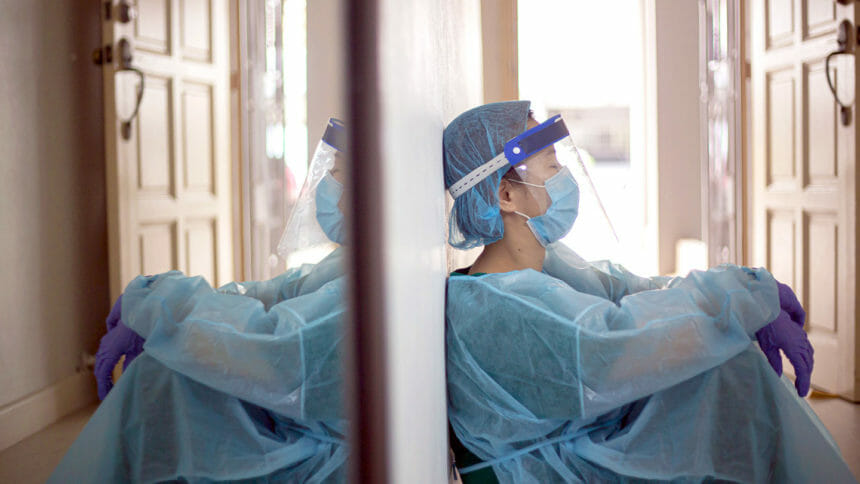
Infection preventionists (IPs) are among the healthcare workers who report worsened mental and physical health due to COVID-19-era stress, according to investigators from Ohio State University and the Association for Professionals in Infection Control and Epidemiology.
In a wide-ranging survey, 926 IP professionals were asked about subjects ranging from depression and anxiety to their eating and sleeping habits. Not only did respondents report depression and anxiety at rates of 22% and 30%, respectively, but 65% said they were burned out. What’s more, few said they were able to meet standard guidelines for healthy amounts of sleep, physical activity and fruit and/or vegetable consumption.
But some responses were linked to better well-being. IPs who worked relatively shorter shifts and who felt that their organization supported their wellness appeared to be faring better than those who worked longer hours and had less perceived support, the researchers reported.
“IPs have played a critical role in preventing the spread of COVID-19 in acute and outpatient settings, but the resulting increases in stress have negatively impacted their mental and physical well-being,” wrote lead author Bernadette Mazurek Melnyk, PhD, APRN-CNP.
A 25% vacancy rate for IP jobs
These difficulties affect not only the individuals, but also negatively impact the quality and safety of healthcare, the authors contended. This is especially important for healthcare organizations to recognize at a time when there is a 25% vacancy rate for IP jobs, and 40% of the workforce is expected to retire over the next decade, they wrote.
“Considering that poor clinician well-being increases turnover, APIC must continue to endorse the importance of investing in worksite wellness cultures that promote well-being through empowerment, risk-taking, engagement, resilience, transparency and respect,” they concluded.
“The fact that so many are exhibiting symptoms of burnout is concerning and should prompt employers to adopt programs to promote well-being in order to retain these highly skilled professionals,” added Linda Dickey, RN, MPH, 2022 APIC president.
The study was published July 13 in the American Journal of Infection Control.
Related articles:
Lessons from COVID-19: Prioritize infection prevention and control for PALTC
CMS’s updated Phase 3 guidance includes hiring of infection preventionists
APIC urges LTC industry to boost infection control capabilities with full-time, certified staff




